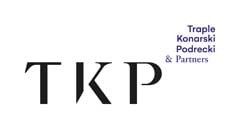News and developments
Right of communication to the public of works once again examined by the Court of Justice of the European Union
CJEU Advocate General Maciej Szpunar delivered an opinion on 22 February 2024 in case C-135/23 concerning the interpretation of the concept of “communication to the public” of works. One of the challenges faced by the Advocate General was to clarify the meaning of this concept in line with the extensive CJEU case law related to this legal institution.
GEMA – a German collecting society –brought a claim for damages against the operator of an apartment building (GL) for copyright infringement. GEMA argued that the manager provided the tenants in the building with television sets equipped with internal antennas to receive a television signal and enjoy certain programmes.
The Amtsgericht Potsdam (Local Court, Potsdam), which is hearing the case, posed the following question in a request to the CJEU for a preliminary ruling: “Is there a communication to the public within the meaning of Article 3 of Directive 2001/29[1], when the operator of an apartment building provides televisions in that apartment building which each receive broadcasts via an indoor antenna without a central reception for transmitting the signals?”.
As recalled by the Advocate General, the Court in its previous case law has distinguished between the concept of (public) communication and the mere provision of physical facilities enabling such communication[2]. The issue to be determined is therefore whether the action of an operator who does not transmit TV signals to rented flats, but only provides tenants with a television set and indoor antennas configured to receive terrestrial TV signals[3], can be considered mere provision of physical facilities. The Advocate General noted that classifying this action in this way would be logically linked in particular to the reasoning adopted in the Stim and SAMI judgment[4], in which the CJEU stated that the mere supply of physical facilities is the hiring out of motor vehicles equipped with radio receivers. According to the Advocate General, however, the key differences between the two cases are the desirability and indispensability of the user's action. While vehicle rental companies have no control over the fact that radio receivers are installed as standard in vehicles and linked to the control systems of these vehicles, the building manager deliberately and voluntarily installed TV sets with antennas in the flats to allow tenants access to TV programmes.
The Advocate General drew a comparison between the operator's action and the installation in hotel rooms of television sets connected to a central antenna, which the CJEU found to be public access in a judgment in case C-36/07. SGAE[5]. The opinion stressed that the difference between the central antenna and the internal antennas was not of major importance. The decisive factor for a finding an action to be communication to the public in such cases should be deliberate intervention by the user to give access to television broadcast to a new public that would not be able to use the works broadcast without such action (especially in the case of short-term leases where tenants would not be able to receive the signal without the manager providing them with television sets).
Ultimately, the Advocate General proposed that the Court should find that the action of the GL operator falls within the exclusive right of authors to authorise or prohibit communication to the public unless the tenants establish their principal or secondary residence in the flats.
The judgment to be handed down in case C-135/23 is likely to round off the principle of technological neutrality as applied by the CJEU in the interpretation of copyright law. The Advocate General's opinion undoubtedly contains a thorough analysis of the problem raised in the request for a preliminary ruling, including from the point of view of fair treatment of users, and can provide an excellent basis for the Court's decision.
Author: Jacek Piasta
Footnotes
[1] Directive 2001/29/EC of the European Parliament and of the Council of 22 May 2001 on the harmonisation of certain aspects of copyright and related rights in the information society ( OJ L 2001, No. 167, p. 10 as amended).
[2] Mere supply does not constitute a communication to the public within the meaning of art. 3 of Directive 2001/29; cf. recital 27 of Directive 2001/29; CJ judgment of 20.04.2023 in case Blue Air Aviation, C-775/21, C-826/21; ECLI:EU:C:2023:307).
[3] The terrestrial TV signal was available in the area where the building was located.
[4] Judgment of the CJ of 02.04.2020 in case C-753/18 (ECLI:EU:C:2020:268). The Advocate General also referred to other judgments of the CJEU, in which individual actions were considered to be the mere provision of equipment, e.g. the installation on board of means of transport of sound equipment and software to enable the dissemination of background music (CJEU judgment of 20.04.2023 in case Blue Air Aviation, C-775/21, C-826/21; ECLI:EU:C:2023:307).
[5] Judgment of the CJ of 07.12.2006 in case C-306/05, ECLI:EU:C:2006:764.
